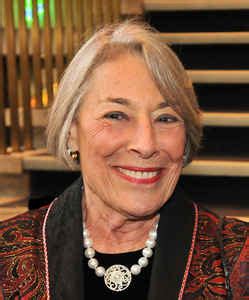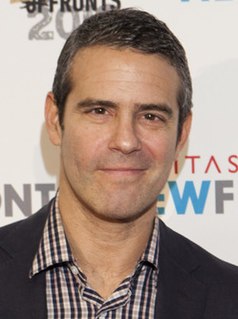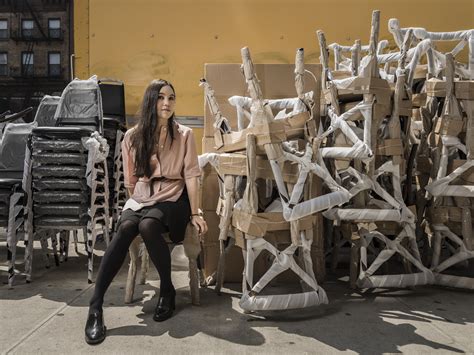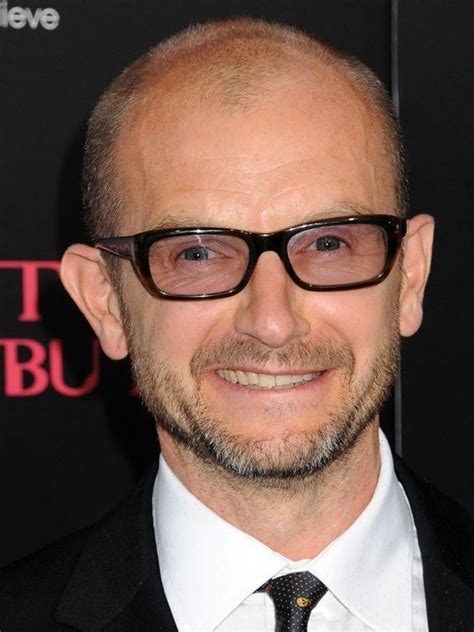A Quote by Diana Gabaldon
You see one scene shot 25 times in one day, which is totally fascinating, but while you're watching it, you're remembering, 'This is what I was thinking when I was writing that part of the book,' and so it brings it all back very gradually as you're working.
Related Quotes
I also think within the scene, a specific scene - if I were to play a part that I played 10 years ago now, my interpretation of that scene would be totally different. I would be making different choices. Because I can't somehow subtract all of the experiences that I've had in my life. And it's fascinating to see, because somewhere I'm very reflective in that. You know, I've been playing basically actually close to 40 years old, so I'm somewhere lost in age in this movie. But it's been fascinating to see that I can't subtract that time.
My mind is in so many different places while we're shooting. Part of it is watching the performance, part of it is watching the camera, and part of it is thinking about the stuff that we have to get that day. It's always a pleasure watching, but you also take it for granted, when you're on the actual grind, making the show.
Don't be afraid to fail. I fail every day. I failed thousands of times writing The Book Thief, and that book now means everything to me. I had many doubts and fears about that book, but some of what I feel are the best ideas in it came to me when I was working away for apparently no result.
Failure has been my best friend as a writer. It tests you, to see if you have what it takes to see it through.
My books are based on the "what if" principle. "What if you became invisible?" or "What if you did change into your mother for one day?" I then take it from there. Each book takes several months in the long process of writing, rewriting, writing, rewriting, and each has its own set of problems. The one thing I dislike about the writing process is the sometimes-loneliness of it all. Readers only get to see the glamour part of a bound book, not some of the agonizing moments one has while constructing it.
When I used to play golf. It's a terrible miserable game. It's incredibly frustrating. In 18 holes you make 150 horrible shots off in the woods, in the water...You make one good shot and it brings you back the next time. With writing a long book there has to be at least one bit that has some magic in it that you can go back to.
have a much harder time writing stories than novels. I need the expansiveness of a novel and the propulsive energy it provides. When I think about scene - and when I teach scene writing - I'm thinking about questions. What questions are raised by a scene? What questions are answered? What questions persist from scene to scene to scene?
I don't like to think in terms of writing ten or twelve pages a day. Usually I'm writing a scene, and it's always with the idea, "I wonder what is going to happen." Or sometimes I write about something that affected me emotionally the day before and that I don't want to lose. I'm very unorganized at first; but finally it comes into a structure where consciously I'm working on a novel per se.
We shot every scene of mine in the entire movie in five days. All my coverage, everything. I left. They went back and shot everybody else around me. Insane. The part [Billie in Crazy Six] called for a handsome, coiffed cool guy romantic lead, and I showed up like you see him in the movie. And they let me do it.
I think one of the things you have to be aware of as an actor is that if you come on the set and see the director standing there mouthing all the words while a scene is going on, that's usually a very bad sign because it means the director has already shot the scene in his head. He knows exactly the rhythm and the nuances that he wants delivered in the line and you're not going to dissuade him.
I always feel super uncomfortable when it's like ah, there probably has to be a sex scene. I feel really bad and then always look around to see if anyone is watching me while I'm writing. I want to apologize to people who have to read those sex scenes, but I feel like it's part of the characters life, it's important.


































